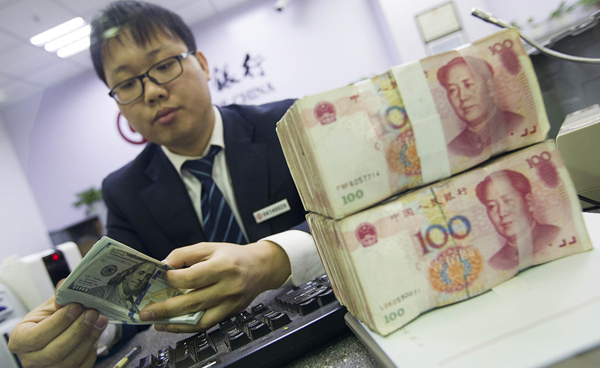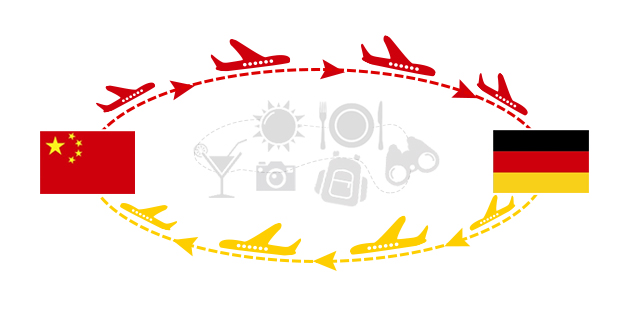Forex reserves up again, top $3 trillion
 |
|
A clerk counts dollar cash at a bank in Taiyuan, capital of Shanxi province. ZHANG YUN / CHINA NEWS SERVICE |
Rise comes on back of balance in supply and weak green back
The Chinese mainland's foreign exchange reserves rose in June for a fifth straight month, as tightened supervision of outbound investment and a weak dollar helped curb capital outflows.
The nation's foreign exchange stockpile climbed to $3.056 trillion in June, up by around 0.11 percent from the previous month, according to data released by the State Administration of Foreign Exchange on Friday.
The currency regulator attributed the continued positive trend in the data to basically balanced foreign exchange supply and demand and the appreciation of a basket of currencies against the dollar.
Economists on Friday said that supported by strong economic fundamentals and the government's efforts to open up the domestic capital market, the reserves are likely to rise slightly in the coming months, while remaining largely stable.
Guan Tao, former director of the international payments department at China's State Administration of Foreign Exchange, said during a conference on the renminbi in late June that forex reserves appeared to have stabilized, mainly supported by eased capital outflow pressures in recent months.
Aside from the forex reserves fall in January to $2.998 trillion-the first since March 2011-reserves have risen by around 1.5 percent as of June, compared with the start of the year, the currency regulator said.
Guan said the government's enhanced supervision of outbound investment had gradually taken effect to help curb capital outflow pressures.
From December 2016, the government introduced a slew of measures tightening screening of overseas investment projects-amid concern about capital outflows and market expectations for a continued depreciation of the yuan.
Analysts say that after the yuan exchange rate against the dollar hit a six-year low level in December, the yuan's performance against the greenback has been steady after the US currency lost its upward momentum.
Wang Youxin, an economist at Bank of China, said the central bank does not need to deplete its reserves in order to stabilize the yuan.
More balanced cross-border flows will also be supported by the government's efforts to open up the domestic capital market, according to Cheng Shi, ICBC International Research Director, referring to measures such as the mainland-Hong Kong bond connect program.
"The program is not something that has only symbolic meaning. It will generate long-term positive impact," he said.
"An expected increase in foreign capital inflows will help offset domestic capital outflows," he said.









